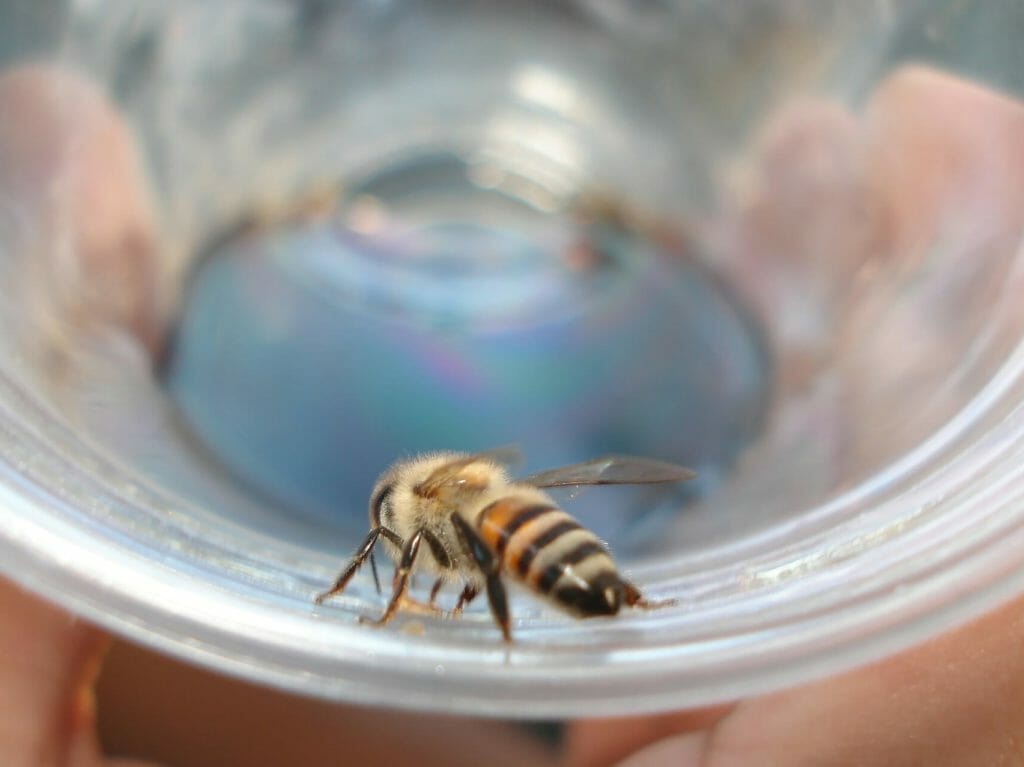Would you get regular injections of bee venom if it made you immune to bee stings?
Beekeepers have to be pretty tough. But there’s some pretty complex biology behind how the body responds to a bee sting. Ten years ago New Scientist reported on a Swiss study into how beekeepers develop immunity to bee stings when tending their hives. Why do bee stings early in the season block a potent immune reaction in the following months?
The beekeepers’ “secret” involves special T-cells working in the immune response. These T-Cells sense histamines produced by the initial reactions, then they actually morph into a “regulatory T-Cells”. These calm the immune response for the rest of the apiculture season.
But it’s a 2013 study from the Stanford University School of Medicine where things get interesting.
Science magazine reports that the study administered a small amount of bee sting venom to trigger a “type 2” immune response in mice – i.e. an allergic response. All the mice’s immune systems boosted production of venom antibodies, though not all were prone to an allergic response. Three weeks later, the researchers gave a “potentially lethal dose” of the venom to both the allergic and non-allergic mice.
Now here’s the real kicker: after the second and potentially lethal dose, 80% of the allergic mice survived, but only 28% of the nonallergic mice did. It seems that the mice who had an allergic response to a small dose of bee venom actually developed greater immunity in the long run!
Whether this applies to other mammals (i.e. humans) is, according to Science, “unclear”. But it’s still of comfort to Ian at Bee2Bee. He’s been in hospital this morning for another round of bee venom immunotherapy. He’ll be back to work in the warehouse this afternoon, even if he is feeling a bit off-colour.





